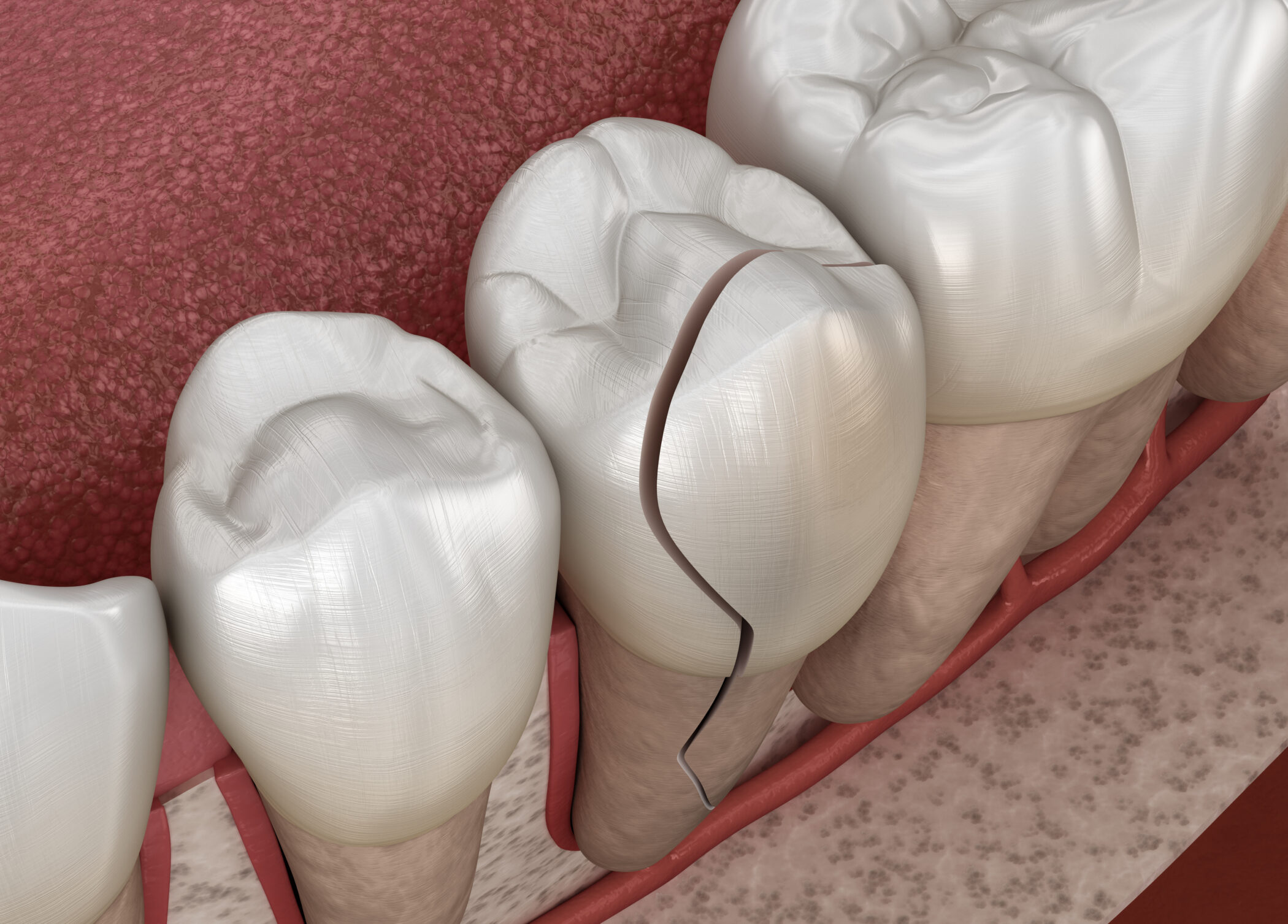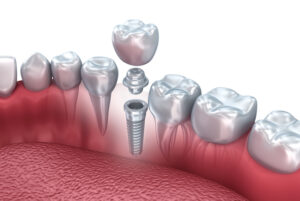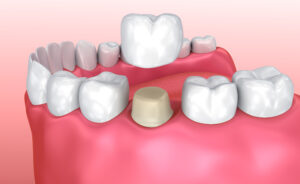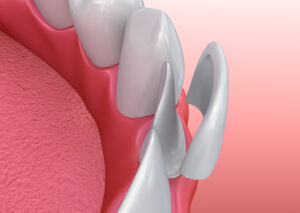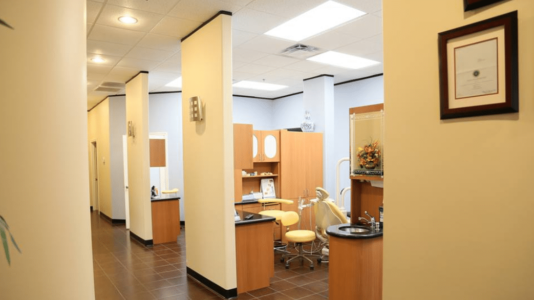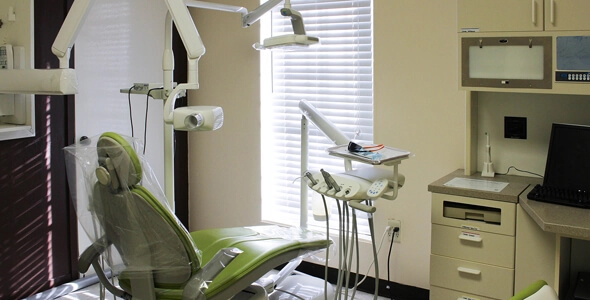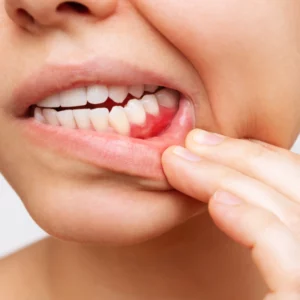How to Fix a Chipped Tooth
Many people confuse chipped and cracked teeth. While similar, the two conditions are actually different. A cracked tooth is a crack that appears usually starting at or near the gumline and extends to the biting surface of the tooth or into the root. A chip, on the other hand, is a piece that comes off of the tooth.
Many people panic when they have a chipped tooth. However, research shows that this is one of the most common dental injuries. There are many reasons a tooth may chip and it can actually be a fairly easy fix when you see a dentist.
Why Does Our Tooth Get Chipped?
There are several possible reasons that a tooth may become chipped:
- Biting down on a hard substance: Hard substances, such as hard candies, nuts, and ice can cause a tooth to chip. In addition, biting down on hard, non-food items can cause a tooth to chip.
- Trauma to the face/mouth: Being hit in the face/mouth such as in the case of a sports injury or car accident, your risk of chipped teeth increases
- Bruxism: This is a condition characterized by clenching/grinding of the teeth, the pressure put on the teeth increases the risk of chipped teeth
- Tooth decay: Tooth decay weakens the structure of the tooth, which can increase the risk of the tooth chipping.
- Weakened enamel: Tooth enamel is the hardest substance in the body and is what protects your teeth from damage. Over time, enamel can weaken due to aging or conditions such as diabetes, acid reflux, and eating disorders. This increases the risk of chipped teeth.
- Stress: When you’re stressed for any reason, you’re more likely to engage in behaviors that could cause chipped teeth.
Common Problems Associated with a Chipped Tooth
There are several issues that you may experience when you have a chipped tooth, which is why it’s best to get treatment as soon as possible:
Pain when chewing
When a tooth is chipped, the nerves inside of the tooth are exposed, which can cause pain when chewing.
Increased temperature sensitivity
When the nerves of the tooth are exposed, you may also experience sensitivity to heat/cold.
Gum inflammation around the affected tooth
Many times, when a tooth is chipped, the gums around the tooth become inflamed.
Your dentist will perform a comprehensive examination, which will include x-rays and any other necessary imaging. This will allow them to see the extent of the damage to determine the best course of treatment.
What to Do When You Have a Chipped Tooth
A chipped tooth is considered a dental emergency. Therefore, the first thing you should do is call your dentist for an evaluation. In the meantime, there are some things you can do to deal with the complications that come with it.
Stop the bleeding
If you are bleeding from the injury, the first thing to do is stop the bleeding and determine the extent of the damage if possible.
Rinse your mouth with lukewarm salt water
Rinsing with lukewarm salt water will help eliminate bacteria and relieve the pain that comes with a chipped tooth.
Use a pain reliever
An OTC pain reliever such as ibuprofen or acetaminophen can help with pain relief while you wait for the dentist.
Eat soft foods
If you must wait a few days to see the dentist, stick with soft foods. This will allow you to get the nutrients you need without causing too much pain while chewing.
Cover all jagged edges
Use a tooth repair kit or dental wax to cover any jagged edges. This will prevent mouth sores from the chipped tooth rubbing against the tongue or the inside of the lips/cheeks.
Cosmetic Dental Treatments Available to Repair a Chipped Tooth
If you have a chipped tooth, no matter what caused it, there are options for repairing it:
Dental Bonding
Dental bonding is a treatment involving the application of composite resin or porcelain to the surface of the affected tooth. After the application of the material, an ultraviolet light will be used to harden and dry it. The dentist will then shape the material until it blends perfectly with adjacent teeth. This treatment can last up to 10 years.
Dental Implants
If the chip is large and the tooth is unrepairable, a dental implant may be the best course of treatment. This will involve the extraction of the remainder of the tooth. An implant screw/post will be placed in the socket of the tooth, which will act as an artificial tooth root, creating a stable base for an artificial tooth. Once healed, a dental implant should last a lifetime with proper care and maintenance.
Dental Crowns
A crown is a tooth-shaped cap placed over a damaged tooth to protect it or used as an artificial tooth with a dental implant. A crown may be made of porcelain, composite resin, metal, or porcelain-fused-to-metal. On average, a dental crown should last up to 20 years or more with proper care and maintenance.
Porcelain Veneers
A dental veneer is a thin shell that is placed on a tooth that is damaged to restore its appearance. Your dentist will remove a portion of the enamel, usually less than a millimeter, to create space for the veneer. An impression/mold will be taken of the tooth and sent to a lab- a temporary veneer will be attached to the tooth in the meantime. When the permanent veneer is attached, you can expect it to last up to 30 years with proper care and maintenance.
Repair Your Chipped Teeth with A Dental Care’s Cosmetic Dentist in Houston, TX
We offer all Cosmetic Dentistry Services from Teeth Whitening to Porcelain Veneers. Our Dentists work with you throughout the treatment to provide you the best care possible. Book your next appointment in any of our 5 convenient Dental Clinics across Houston and Spring, TX.



